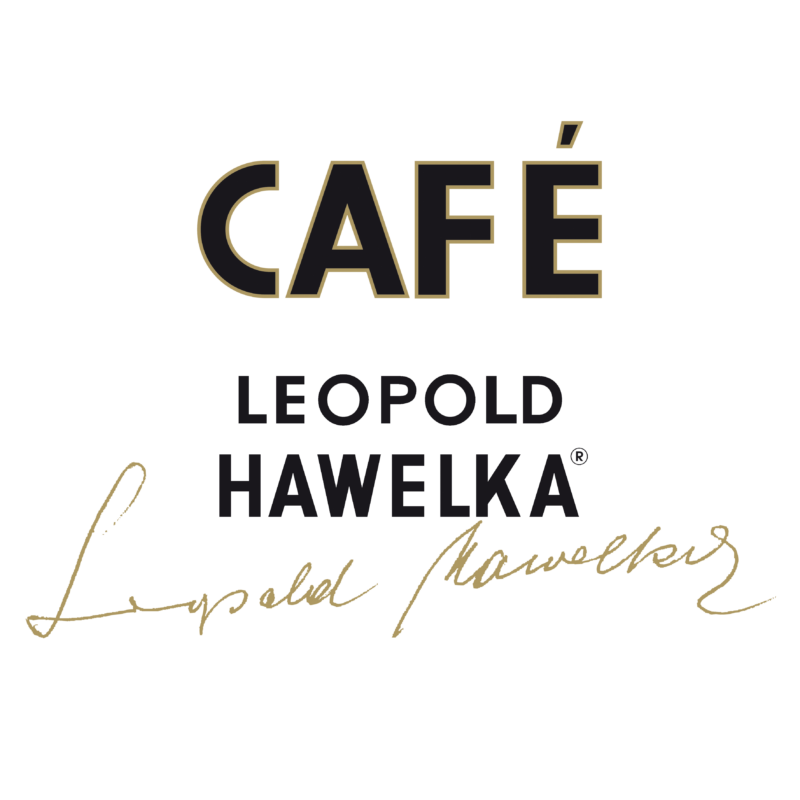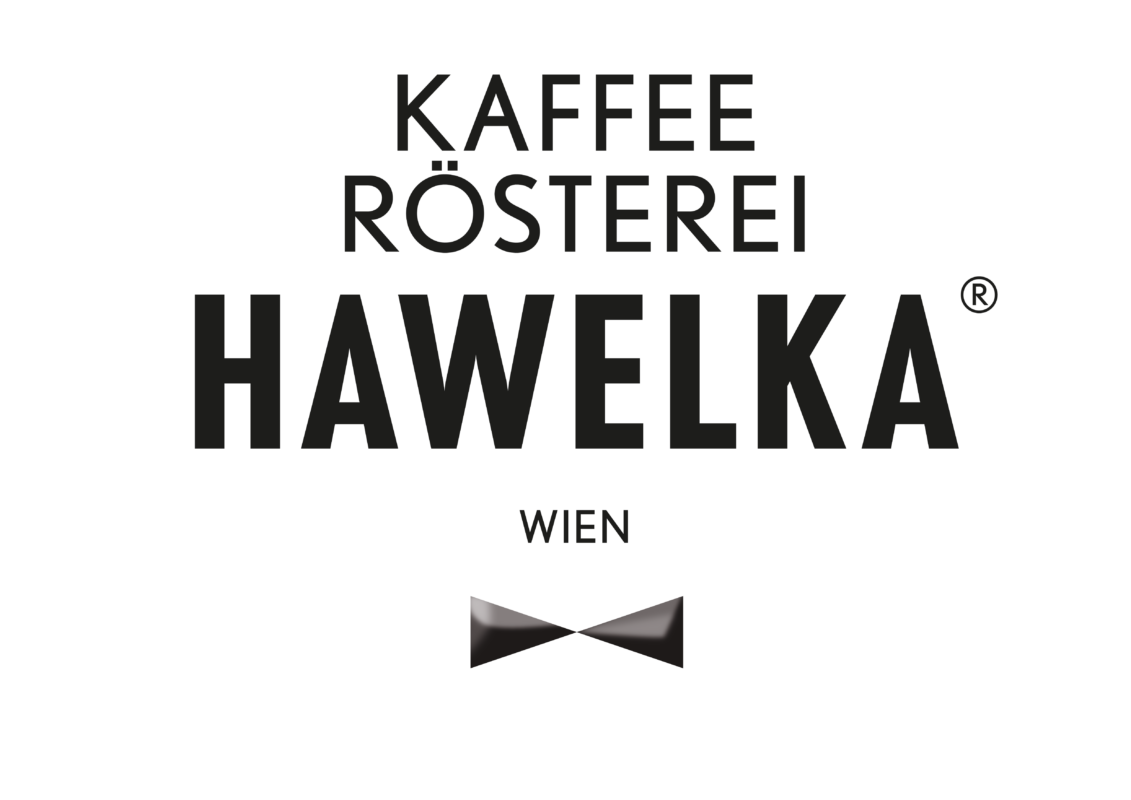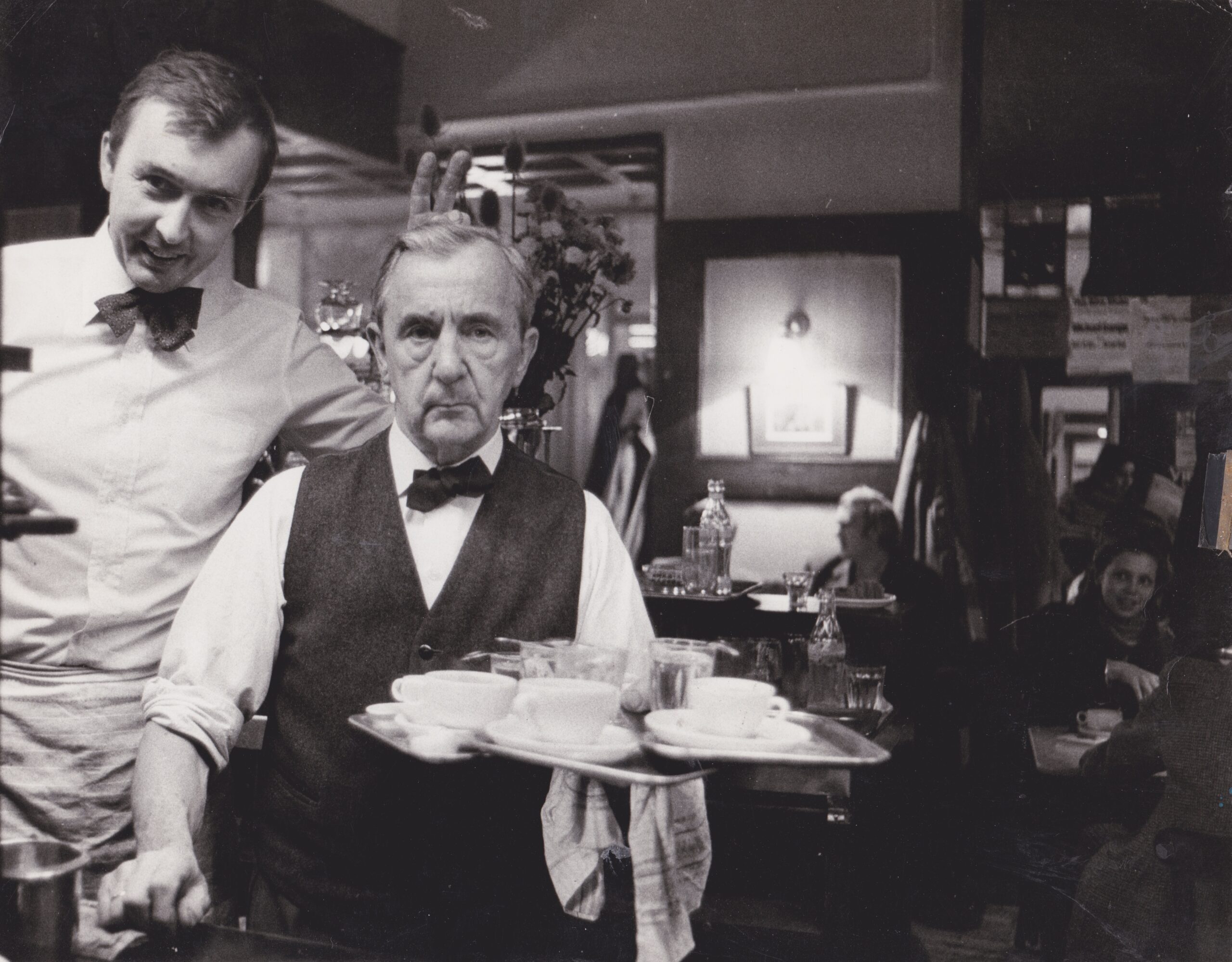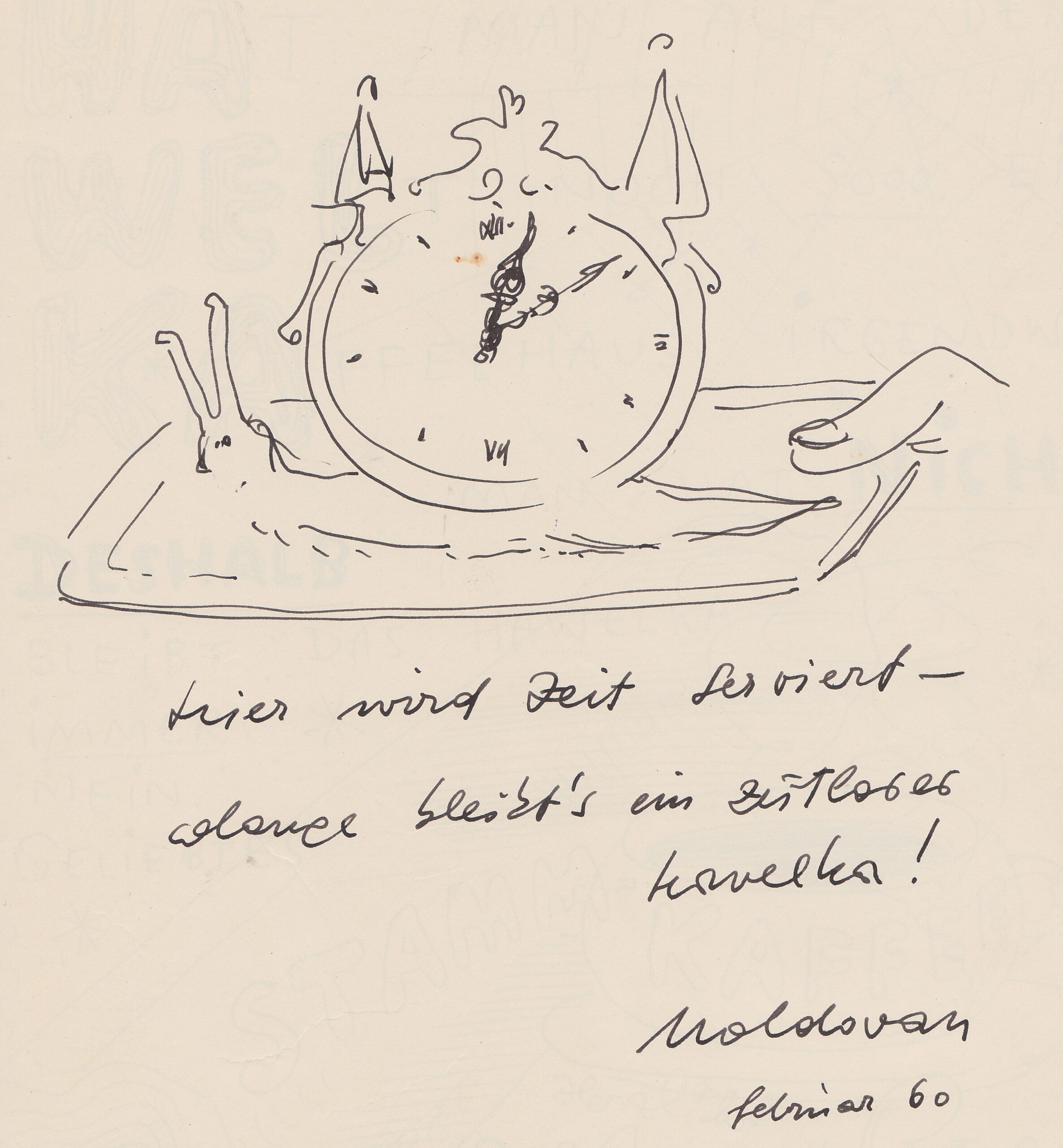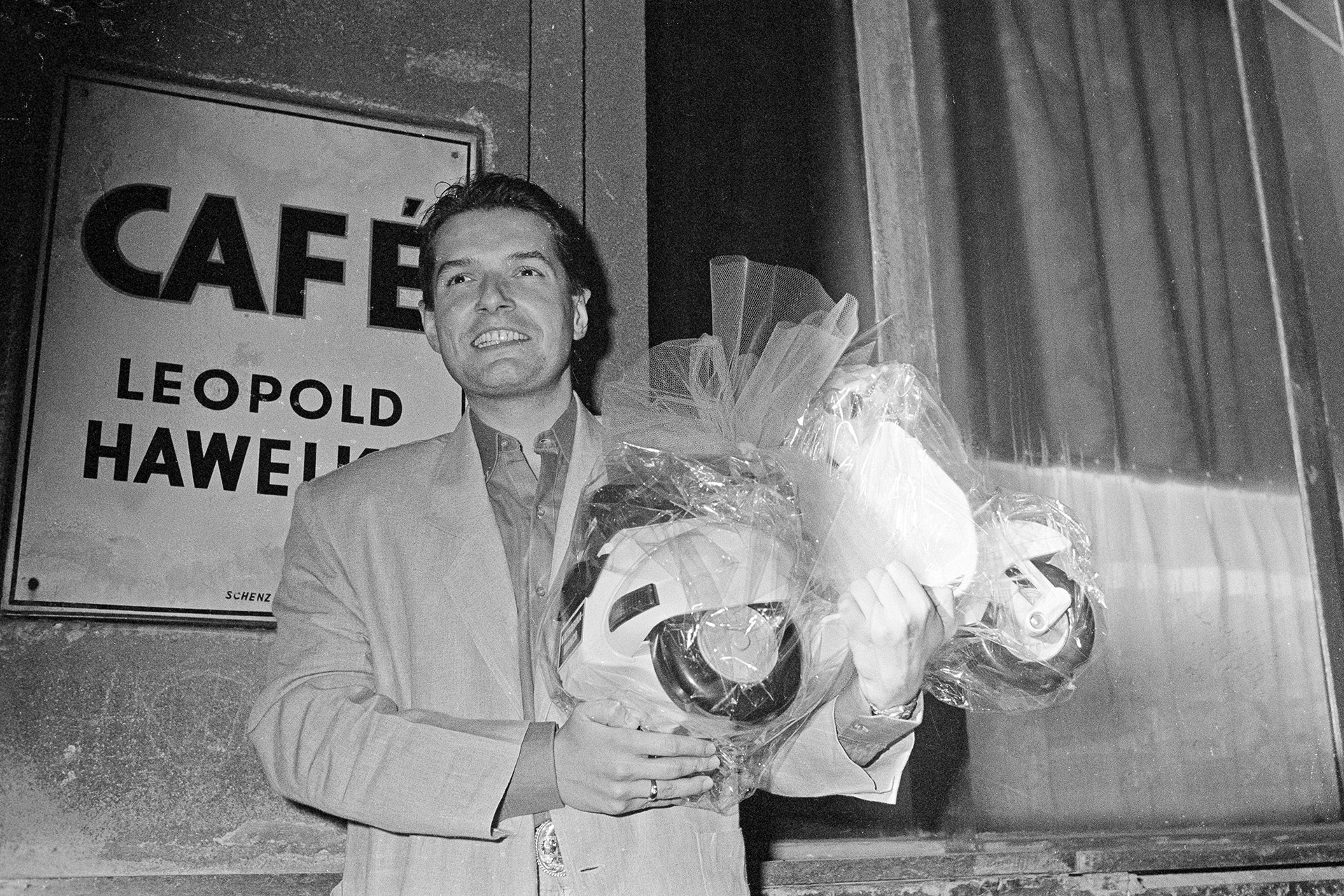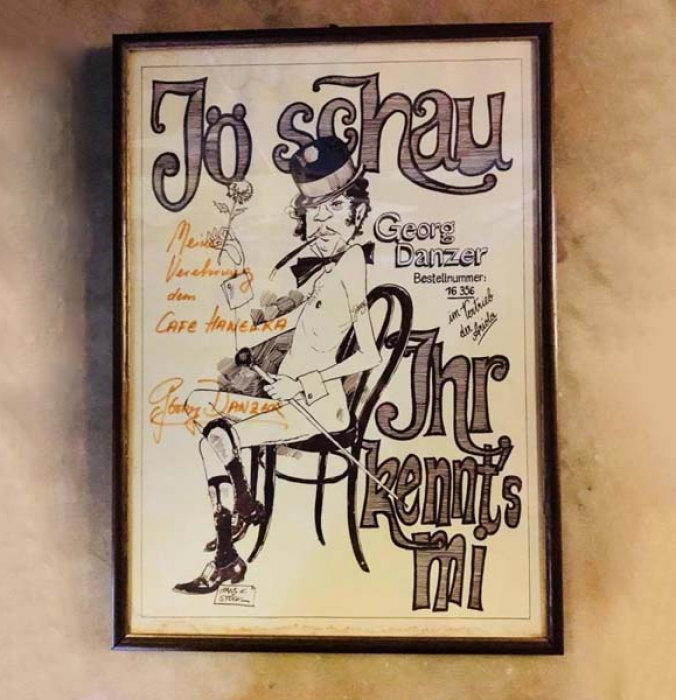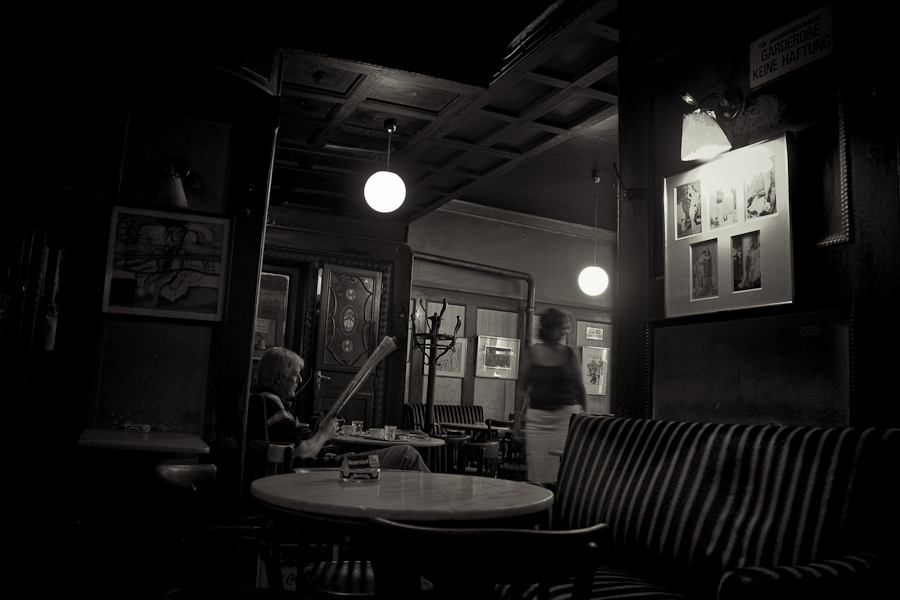
What would Vienna be without Hawelka, what would Hawelka be without its guests? And what would our country’s artists be without this space to think and discuss, inspire and enjoy?
Tradition has history
In 1936, Leopold and Josefine Hawelka began their joint career as café owners with the lease of the “Café Alt Wien” in Bäckerstraße – 3 years later they took over the smaller “Café Karl” (former Chatham Bar) in Dorotheergasse.
In the 1950s, the Hawelka was regarded as a literary meeting place with an existentialist touch, where budding artists dreamed of fame and immortality. When the Art Club became defunct, many migrated to the Hawelka – a group gathered around the young H.C. Artmann and admired his sense for the poetic, macabre and unconventional.
In addition to the writers, the young painters also begin to take their seats in the Hawelka.
go to storyThe great age of art & literature
With Friedensreich Hundertwasser, Ernst Fuchs, Rudolf Hausner – to name but a few – the atmosphere of the quiet, smoky reading room is finally stormed by previously unknown youthful energy.
During the sixties and seventies, Café Hawelka represented everything that was fresh and active in the Viennese art scene. A fact that is also attracting more and more celebrities from abroad. Elias Canetti, Arthur Miller and Andy Warhol, for example – for Leopold Hawelka, the greats of art become simply nice guests as a matter of course.
Unforgettable celebrations – An anecdote from the coffee house
February 19, 1987. A very special day for Café Hawelka. But it was also a special day for Falco. A big birthday party was to be held to mark his 30th birthday. And where would be a more suitable place to celebrate this party than his favorite hangout? Even before that, he enjoyed meeting up with his friends Georg Danzer, Reinhard Fendrich and Wolfgang Ambros in our “Kleinen Ecke”. On that day in February, not only was a 30-kilo cake served, but a magician was also hired to provide an unforgettable evening with his show.
Even today, a glance at the ceiling brings back memories of the birthday party. During one of the magician’s card tricks, a playing card – the ace of hearts – was conjured up on the ceiling. How? This is still a great mystery to us today. The only thing that is clear is that she has been stuck to the ceiling since that evening. The only difference is that the ceiling and the menu are no longer white, but have taken on a nicotine-brown color due to the smoking that used to be common in coffee houses.
However, this was not the magician’s last appearance at Hawelka. On his second visit, he immediately conjured up another playing card on the ceiling, which succumbed to the same nicotine-brown fate as its predecessor.
Sing me a song from Hawelka
“Jö schau, so a Sau, jössas na. was macht a Nackerter im Hawelka…” Some of you may recognize this line from Georg Danzer’s song “Jö schau”. In 1975, he wrote about a streaker in Café Hawelka and achieved great success with the song. But it didn’t immediately create a good atmosphere at Café Hawelka.
A gathering of the greats
Café Hawelka has always been a meeting place for painters, musicians, philosophers and artists of all kinds. Georg Danzer also entered the Hawelka for the first time at the age of 16, and it not only became his regular café, but also a piece of home for him. The inspiration for the song was the reception of the guests in the coffee house. Georg Danzer was once again sitting at his regulars’ table when he noticed that Josefine Hawelka greeted a guest in a very special way and even came running to the door to meet him. The then 25-year-old artist realized that he had never been greeted like this before and came to the conclusion that not everyone at Hawelka was the same. However, this particular guest was older than Josefine, which was also the reason why she treated him with particular respect. Nevertheless, this brief welcoming moment served as the decisive inspiration for “Jö schau”.
“Poidi, now we’re ruined!”
The Hawelka couple were in a cab on their way home from Italy when they heard Georg Danzer’s song “Jö schau”, which tells of a naked man in their coffee house, on the radio for the first time. Josefine’s reaction was the simple exclamation “Poidi, now we’re ruined!” Leopold was also sure that a naked man in combination with the Hawelka would give him a bad reputation. But contrary to expectations, Café Hawelka was carried out into the world even more through this song. Leopold and Josefine even acted in the music video themselves. The dialect, but also the content of the lyrics, made the song very popular. However, it was not only used for musical entertainment, many people were even motivated by the lyrics to engage in similar behavior. And so it was that after the appearance of “Jö schau”, a streaker whizzed through the coffee house from time to time.
